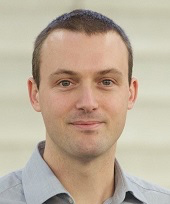Tutorials
Building Data Warehouses in the Era of Big Data An Approach for Scalable and Flexible Big Data Warehouses
by Carlos Costa and Maribel Yasmina Santos


When: 5th June, 11:30-13:00
Where: Room A
Abstract: This tutorial addresses the design and implementation of Big Data Warehouses, presenting a general approach that researchers and practitioners can follow in their Big Data Warehousing projects, exploring several demonstration cases focusing on system design and data modelling examples in areas like smart cities, retail, finance, manufacturing, among others.
Short Bio of Speakers:
Carlos Costa (PhD) is an Invited Lecturer in the field of Information Systems, at the University of Minho (http://www.uminho.pt). Previous experiences include senior Big Data engineer, researcher, software developer and database administrator. He is the (co)-author of several scientific and technical publications in the area of Big Data, Data Warehousing and Data Science, and he is constantly looking for new ways of contributing to the community of researchers and practitioners related to these topics.
Maribel Yasmina Santos (PhD, Habilitation) is an Associate Professor at the Department of Information Systems, University of Minho (http://www.uminho.pt), Senior Researcher of the ALGORITMI Research Centre (http://algoritmi.uminho.pt), and leader of SEMAG, the Software-based Information Systems Engineering and Management Group, at ALGORITMI. Her research interests include Business Intelligence and Analytics, Big Data Analytics, (Big) Data Warehousing and Online Analytical Processing.
Semantic Modeling of Performance Indicators and Metrics
by Claudia Diamantini, Domenico Potena and Emanuele Storti



When: 6th June, 11:30-13:00
Where: Room A
Abstract: Performance Indicators (PIs) and metrics are essential management tools. They provide synthetic objective measures to monitor the progress of a process, set objectives and assess deviations, enabling effective decision making. They can also be used for communication purposes, facilitating the sharing of objectives and results, or improving the awareness on certain phenomena, thus motivating more responsible and sustainable behaviors. Given their strategic role, it is of tantamount importance, as well as challenging, to guarantee that the intended meaning of an indicator is fully shared among stakeholders, and that its implementation is aligned with the definition provided by decision makers, as this is a pre-condition for data quality and trustworthiness of the information system. The tutorial will survey recent semantic approaches to specify conceptual definitions of indicators and metrics, illustrating also the advantages of these formal approaches in relevant use cases and application domains. Special emphasis will be given to distributed collaborative information systems, where semantic specifications promise to offer the best impact when dealing with discrepancies among different definitions of an indicator, data integration, and sharing.
Short Bio of Speakers:
Claudia Diamantini, Ph.D., is Associate Professor at Università Politecnica delle Marche. She is Vice Dean of the Faculty of Engineering and coordinates the PhD curriculum in Computer and Automation Engineering. Her main research interests are in semantic models for data interoperability, data analytics and data mining. She has been working on these topics within national and international research projects and collaborations.
Domenico Potena received the MSc degree in Electronic Engineering from the University of Ancona, Italy, in 2001, and the Ph.D. in Information Systems Engineering from the Università Politecnica delle Marche, Italy, in 2004. At present, he is an assistant professor at Università Politecnica delle Marche. His research interests include knowledge discovery in databases, big data analytics, data warehousing and process mining.
Emanuele Storti is a postdoctoral researcher in Computer Science at the Department of Information Engineering of Università Politecnica delle Marche and EOSC Officer at Eurodoc (European Council of Doctoral Candidates and Junior Researchers). His research interests include semantic technologies and knowledge management to support interoperability in distributed and collaborative eco-systems of organizations, open data, business intelligence.
Ontological Patterns and Anti-Patterns for the Modeling of Complex Enterprise Relations
by Nicola Guarino, Giancarlo Guizzardi and Daniele Porello



When: 6th June, 14:30-16:00
Where: Room A
Abstract: Enterprise modeling requires of course to pay attention to different kinds of business relationships. In many cases, we need to talk about such relationships, for instance, when the contractual conditions that regulate them evolve in time, or when such conditions are violated. In terms of conceptual modeling, this means that relationships need to be reified, i.e., they need to be put in the domain of discourse. In this tutorial we shall first introduce the ontological basis of relationships reification, according to which relationships are construed as truthmakers of relational statements. We shall then illustrate different kinds of ontological patterns and anti-patterns based on the different nature of such truthmakers, by discussing concrete case studies related to enterprise modeling. The material presented is based on a novel theory of relationships and reification that has been successfully applied to model economic transactions, legal relations, service contracts and service life-cycles, preference relations in economics, and strategic enterprise relationships.
Short Bio of Speakers:
Nicola Guarino works at the Laboratory for Applied Ontology (LOA) of the CNR Institute of Cognitive Sciences and Technologies (ISTC-CNR) in Trento. He has been playing a leading role in the ontology field, developing a strong interdisciplinary approach that combines together computer science, philosophy, and linguistics. Current research interests are focusing on the ontological foundations of knowledge representation and conceptual modeling, enterprise modeling, service science, socio-technical systems, and the ontology of economics.
Giancarlo Guizzardi is a Professor of Computer Science at the Free University of Bolzano-Bozen, Italy, where he leads the Conceptual and Cognitive Modeling Research Group (CORE). He has been working for more than two decades in the interplay between Applied Ontology and Information Systems Engineering.
Daniele Porello is a researcher at the Laboratory for Applied Ontology, Institute for Cognitive Sciences and Technologies, Italian National Research Council (CNR). He is working in areas such as foundational ontology, computational logics, non-classical logics, computational social choice and cognitive semantics.
Conformance Checking: Relating Processes and Models
by Josep Carmona, Boudewijn van Dongen and Matthias Weidlich



When: 7th June, 11:30-13:00
Where: Room A
Abstract: Conformance checking defines models and methods to analyze the relation between the behavior of a process as captured by a process model and the behavior of it as captured by event data that is recorded by an information system during process execution. The goal of the tutorial is to introduce the essential ideas of how to relate modelled and recorded behavior on an intuitive level, and outline the space of applications that may benefit from conformance checking.
Short Bio of Speakers:
Josep Carmona is an associate professor at the Computer Science Department of the Universitat Politècnica de Catalunya, Spain. He has taught process mining to students and practitioners for a decade in several countries. He is also an active researcher in process mining, business process mangament, formal methods and data science. He is involved in several open-source projects related to these fields.
Boudewijn van Dongen is chair of the process analytics research group at the Department of Mathematics and Computer Science of the Eindhoven University of Technology. He has been an active researcher in the field of process mining since the first papers on the topic appeared in the late nineties and today he focusses on both fundamental questions in the area of conformance checking as well as the engineering aspects thereof. His research group maintains the process mining framework ProM which allows students, researchers and practitioners worldwide to contribute to state-of-the-art developments in process mining.
Matthias Weidlich heads a research group at Humboldt-Universität zu Berlin, Germany. His research interests include process-oriented and event-driven information systems. Specifically, his group develops formal methods for the specification and verification of such systems, their analysis based on event data, and techniques that optimise their run-time behaviour.

